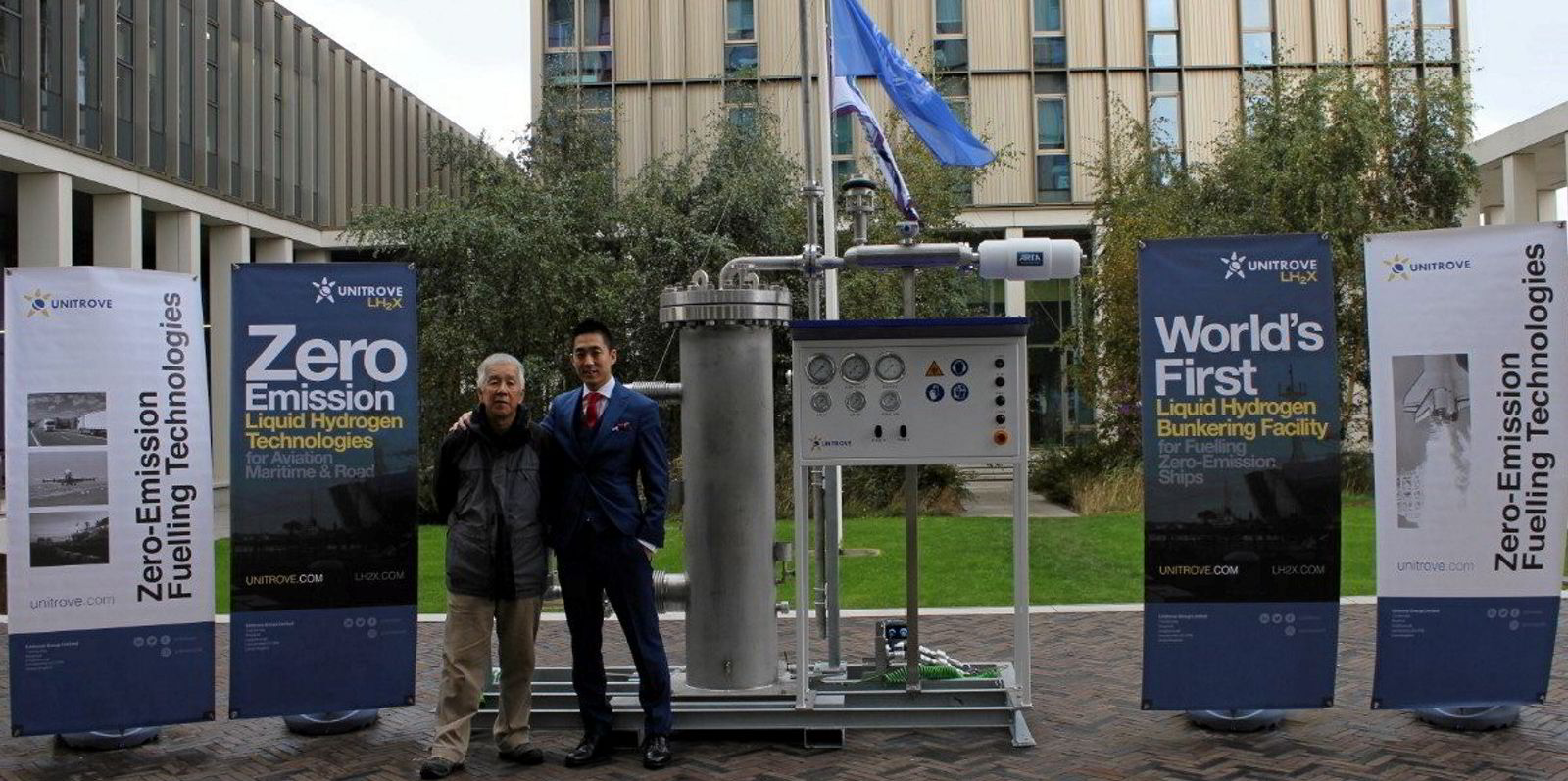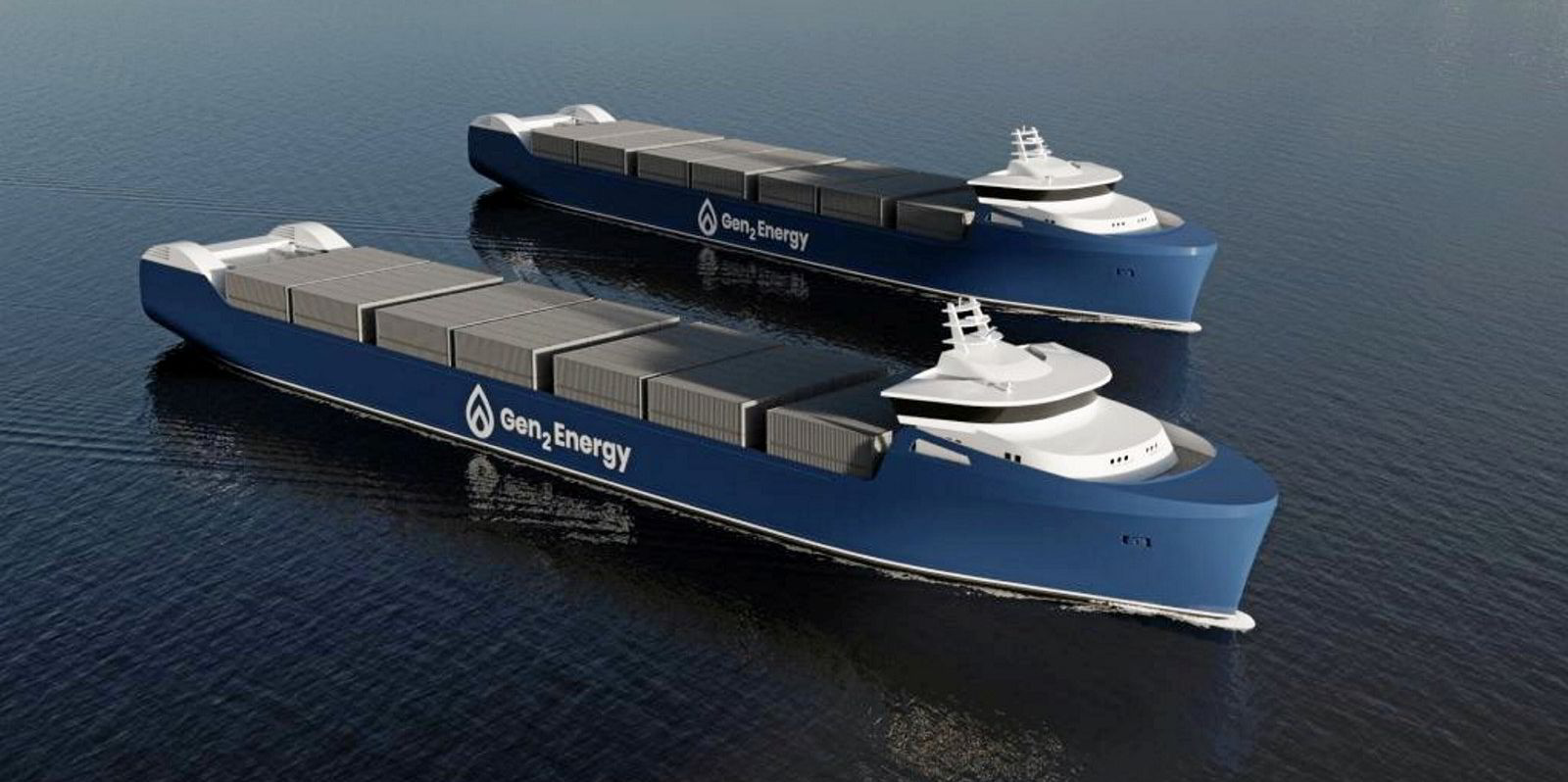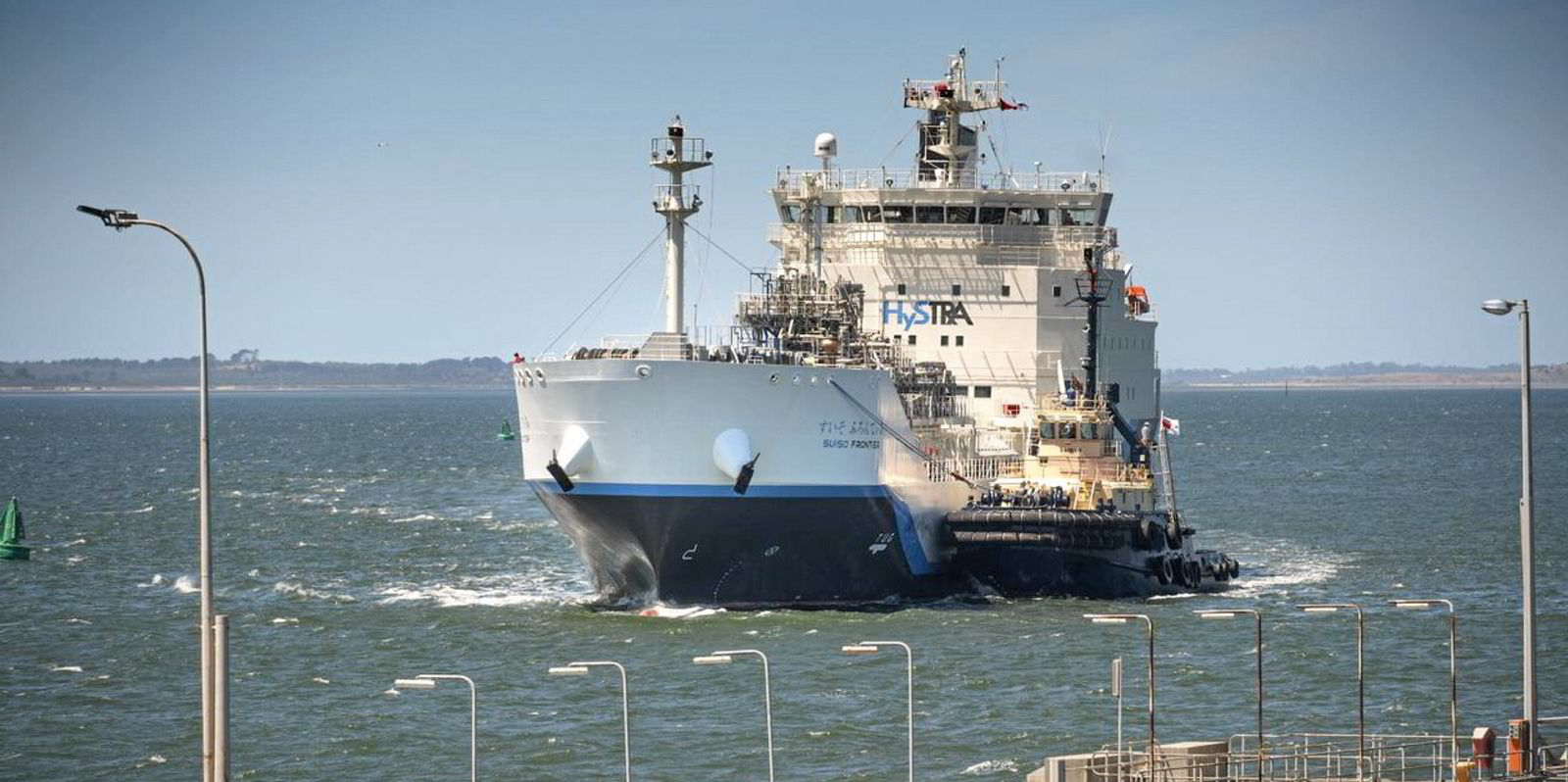A UK-based developer of a liquid hydrogen bunkering facility for fuelling zero-emission vessels has won a government grant to help develop a unit for rapid deployment to ports around the world.
Unitrove Innovation has been given a £30,000 ($39,500) Transport Research and Innovation Grant (TRIG), awarded by the UK’s Department for Transport in partnership with Connected Places Catapult.
The funds will be used to help further develop a commercial version of the small-scale portable facility it unveiled at COP26 in Glasgow last November.
Unitrove Innovation chief executive Steven Lua said liquid hydrogen is a relatively unexplored option as a commercial fuel but has potential for plugging gaps that electric energy and compressed hydrogen cannot fill.
Liquid hydrogen technology is mature as a rocket fuel, but markets for its use are not.
“We already see very early signs of light-duty vessels being battery-driven or powered by compressed gaseous hydrogen, but liquid hydrogen will allow us to serve the heavier portion of the shipping fleet where we hope to have a much larger impact,” Lua said.
The company is also exploring options including ammonia, liquid organic hydrogen carriers and solid hydrogen in the form of sodium borohydride.
But Lua said: “We believe that hydrogen will be recognised as a global commodity that will be traded in the same way that natural gas is today. The bunker fuel market is worth an estimated $120bn, so there is a huge opportunity not only in environmental and social terms, but also financially.”
The TRIG programme was launched by the Department for Transport in 2014 to foster research and innovation.
This year it has made 51 awards worth £1.95m across mainly land-based transport sectors.
Another maritime decarbonisation recipient, however, was Armada Technologies for its air lubrication system to reduce hull drag and fuel consumption by pumping air bubbles into the boundary layer between ship and sea.
ACUA Ocean has also received funds to progress the design and build of an advanced control and optimisation algorithm with a specific focus on liquid hydrogen-powered marine vessels.






